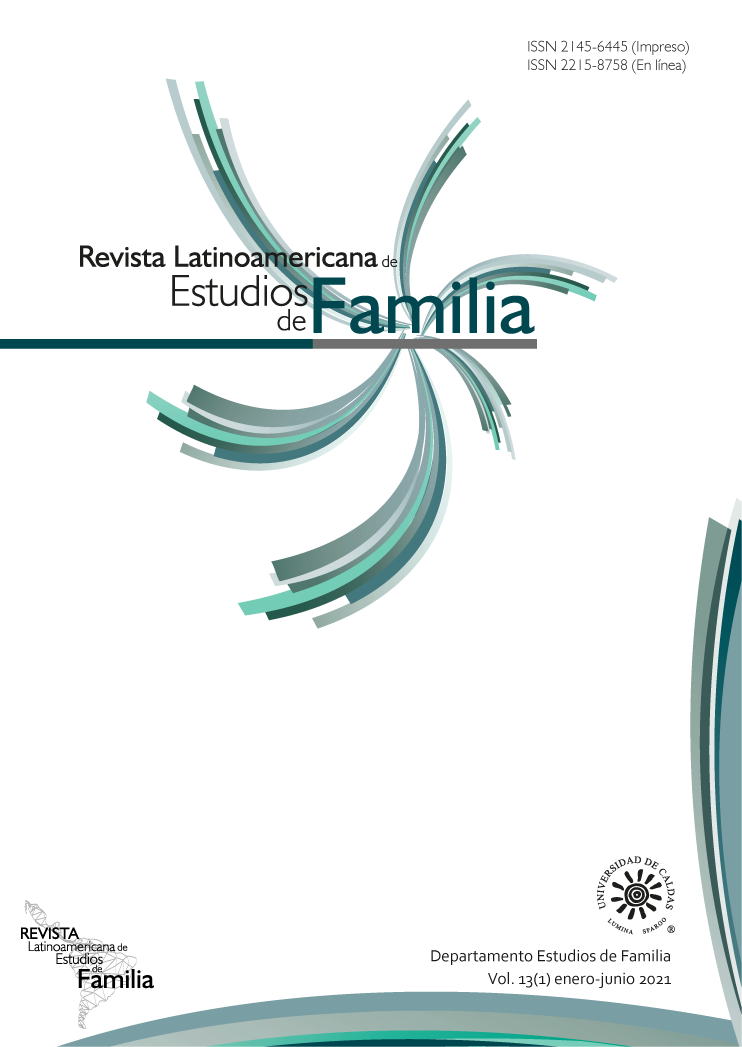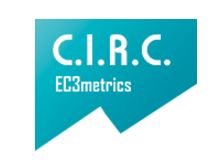Authors
Abstract
Abstract: Objective. To identify and analyze the ethnotheories that parents of five cultural groups have about the education of sons and daughters in middle childhood. Methodology. The research is qualitative in nature. Eighty families from the Metropolitan Area of Guadalajara, Mexico, were interviewed about their conceptions, expectations, assessment and public policies on education. Results. The results show that the families of the different sociocultural groups assign great importance to school education, but they show different reasons for it. Expectations about the educational level of their children are related to their own and, in all groups, support from the State is expected for extracurricular activities. Conclusion. Parental ethnotheories present important variations between groups due to the needs that each one experiences and that public educational policies should take these differences into account.
References
Bui, K. (2019). Cross-Lagged Relationships between Academic Achievement and Perceived Parental Educational Expectations. Education, 140 (1), 39-49.
Cervera, D. (2009). ¿Quién me cuida?: Características de las interacciones entre los niños mayas yucatecos y sus cuidadores. Estudios de Antropología Biológica, 14 (2), 547-565.
Gaskins, S. (2010). La vida cotidiana de los niños en un pueblo maya: Un estudio monográfico de los roles y actividades construidos culturalmente. En L. de León (Comp.). Socialización, lenguajes y culturas infantiles: estudios interdisciplinarios, (pp. 37-76). México: Centro de Investigaciones y Estudios Superiores en Antropología Social, San Cristóbal de las Casas.
Gobierno de México. (2019). Informe sobre la Situación del Consumo de Drogas en México y su atención integral 2019. Recuperado de https://www.gob.mx/cms/uploads/attachment/file/477564/Informe_sobre_la_situacio_n_de_las_drogas_en_Me_xico_.pdf
Grusec, J. E. (2014). Actitudes y Creencias Parentales: Su Impacto en el Desarrollo de los Niños. 5. Recuperado
de http://www.enciclopedia-infantes.com/sites/default/files/textes-experts/es/2520/actitudes-ycreencias-parentales-su-impacto-en-el-desarrollo-de-los-ninos.pdf
Harkness, S. & Super, C. (2006). Themes and variations: Parental ethnotheories in western cultures. En K. H. Rubin, & O. B. Chung (Eds.). Parenting Beliefs, Behaviors, and Parent-Child Relations (pp. 61-79). New York: Psychology Press, https://doi.org/10.4324/9780203942901
Harkness, S. & Super, C. (2014). Parental ethnotheories in action. En I. E. Sigel, A. V. McGillicuddyDeLisi, & J. J. Goodnow (Eds.) Parental belief systems: The psychological consequences for children (pp. 373-392). New York: Psychology Press.
Merriam, S. (2002). Qualitative Research in Practice: Examples for Discussion and Analysis. San Francisco: Jossey-Bass
Miles, M. & Huberman, M. (1994). Qualitative data analysis: an expanded sourcebook. Thousand Oaks: Sage Publications.
Mone, I., Benga, O., & Susa, G. (2014). The Relationship between Cultural Model, Socialization Goals and Parental Ethnotheories: A Mixed Method Study. Cognitie, Creier, Comportament/Cognition, Brain, Behavior, 18 (3), 191-208.
OECD. (2017). How’s Life? 2017: Measuring Well-being. doi: https://doi.org/10.1787/how_life-2017-en.
Olson, J. M., Roese, N. J., & Zanna, M. P. (1996). Expectancies. In A. W. Kruglanski, & E. T. Higgins (Eds.), Social Psychology: A Handbook of Basic Principles (pp. 211-238). Guilford Press.
Orozco, M. E., Espinosa, R., Fonseca, C. E. & Vélez, R. (2019). Informe de Movilidad Social en México 2019: hacia la igualdad regional de oportunidades. México: Centro de Estudios Espinosa Yglesias (CEEY).
Pajares, M. (1992). Teachers´ beliefs and educational research: Cleaning up a messy construct. Review of Educational Research, 62 (3), 1-35.
Palacios, J. (1987). Las ideas de los padres sobre sus hijos en la investigación evolutiva. Infancia y Aprendizaje, (39-40), 97-111.
Prieto, M. (2008). Creencias de los profesores sobre evaluación y sus efectos incidentales. Revista de Pedagogía, 29 (84), 123-144.
Rogoff, B., Najafi, B., & Mejía-Arauz, R. (2014). Constellations of Cultural Practices across generations: Indigenous American Heritage and Learning by Observing and Pitching In. Human Development, 57 (2-3), 82-95.
Saldaña, J. (2017). The coding manual for qualitative researchers (3E [Third edition].). SAGE.
Sánchez, A., Reyes, F. y Villarroel, V. (2016). Participación y expectativas de los padres sobre la educación de sus hijos en una escuela pública. Estudios Pedagógicos (Valdivia), 42 (3), 347-367.
Sanchez-Susuzki Colgrove, K. (in press). Latinx immigrant parents’ views on learning and collaboration in the early childhood classroom. Infancia & Aprendizaje.
Solís, P. y Dalle, P. (2019). La pesada mochila del origen de clase. Escolaridad y movilidad intergeneracional de clase en Argentina, Chile y México. Revista Internacional de Sociología, 77 (1), 118.
Totkova, Z. (2019). Symbolic Interactionism and the Perceived Style of Parenting. Qualitative Sociology Review, 15 (2), 172-184.
Vélez-Grajales, R., Campos, R. y Fonseca C. (2015). El concepto de movilidad social: dimensiones, medidas y estudios en México. México: Centro de Estudios Espinosa Yglesias (CEEY).
Villatoro, J. A., Medina-Mora, M. E., del Campo, R. M., Fregoso, D. A., Bustos, M. N., Resendiz, E… & Cañas, V. (2016). El consumo de drogas en estudiantes de México: tendencias y magnitud del problema. Salud Mental, 39 (4),193-203.
Weinberg, D., Stevens, G. W. J. M., Finkenauer, C., Brunekreef, B., Smit, H. A., & Wijga, A. H. (2019). The pathways from parental and neighbourhood socioeconomic status to adolescent educational attainment: An examination of the role of cognitive ability, teacher assessment, and educational expectations. PLoS ONE, 14 (5), 1-20. https://doi-org.ezproxy.iteso.mx/10.1371/journal.pone.0216803

 PDF (Español)
PDF (Español)
 FLIP
FLIP

























